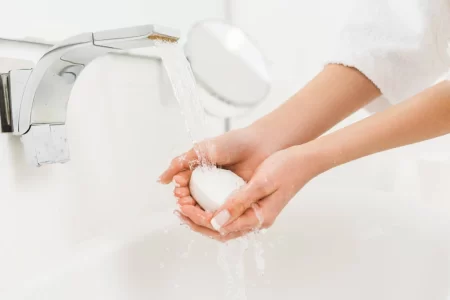 Hygiene plays a crucial role in our daily lives. It not only promotes good health but also contributes to our overall well-being. In today’s fast-paced world, adopting proper practices is more important than ever. In this article, we will explore essential practices that can help you maintain a healthy lifestyle. Let’s dive in!
Hygiene plays a crucial role in our daily lives. It not only promotes good health but also contributes to our overall well-being. In today’s fast-paced world, adopting proper practices is more important than ever. In this article, we will explore essential practices that can help you maintain a healthy lifestyle. Let’s dive in!
Hand Hygiene
One of the most fundamental aspects of personal hygiene is proper hand hygiene. Our hands come into contact with numerous surfaces throughout the day, making them a breeding ground for germs. To maintain cleanliness, wash your hands frequently with soap and water for at least 20 seconds. Additionally, carry a hand sanitizer containing at least 60% alcohol for situations when soap and water are not readily available.
Oral Hygiene
Maintaining good oral health not only ensures fresh breath but also contributes to overall health. Brush your teeth at least twice a day using fluoride toothpaste. Remember to clean your tongue as well to remove bacteria and prevent bad breath. Don’t forget to floss daily to remove food particles stuck between your teeth and visit your dentist regularly for check-ups and professional cleaning.
Body Hygiene
Proper body hygiene is essential to eliminate body odor and prevent infections. Start by taking regular showers or baths using warm water and mild soap. Pay special attention to areas prone to sweating, such as underarms, feet, and groin. Use antiperspirants or deodorants to control body odor. Additionally, change your clothes and undergarments daily to maintain freshness.
Respiratory Hygiene
With the ongoing pandemic, respiratory hygiene has gained significant importance. Follow respiratory etiquette by covering your mouth and nose with a tissue or your elbow when sneezing or coughing. Dispose of used tissues properly and wash your hands immediately afterward. If you have symptoms of a respiratory illness, wear a mask to protect others from potential infection.
Food Hygiene
Maintaining proper food hygiene is vital to prevent foodborne illnesses. Wash your hands thoroughly before handling food and ensure that your cooking surfaces and utensils are clean. Keep raw and cooked foods separate to avoid cross-contamination. Cook food thoroughly, especially meat, poultry, and seafood, to kill any bacteria present. Refrigerate perishable foods promptly to inhibit the growth of harmful microorganisms.
Environmental Hygiene
Maintaining a clean environment is crucial for your overall well-being. Keep your living spaces clean and tidy by regularly dusting, vacuuming, and disinfecting surfaces. Pay attention to frequently touched objects like doorknobs, light switches, and electronics. Properly ventilate your home to improve indoor air quality. Additionally, ensure that your bedding and towels are washed regularly.
Personal Hygiene
It extends beyond cleanliness. Pay attention to other aspects, such as grooming, nail care, and menstrual hygiene. Trim your nails regularly and keep them clean to prevent the accumulation of dirt and bacteria. Use appropriate menstrual products and change them regularly to avoid infections.
Practicing good hygiene is not only about looking presentable but also about maintaining good health. By incorporating these practices into your daily routine, you can significantly reduce the risk of illnesses and promote a healthier lifestyle. Remember, good habits are simple yet effective, and they contribute to your overall well-being. Prioritize it, and enjoy the benefits of a clean and healthy life!
Picture Credit: VistaCreate